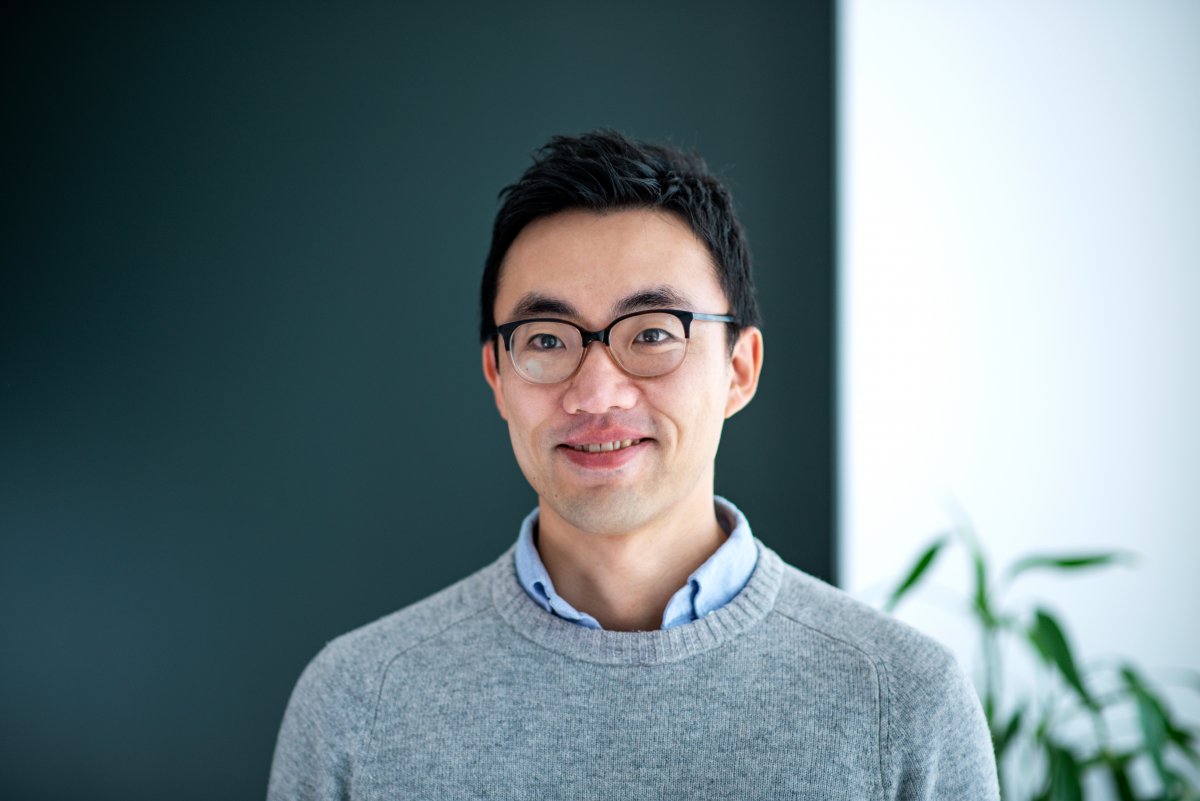Meet Hyoungsuk Jeon
Hyoungsuk Jeon is an Inventor, Radio Technologies and Research Manager with Ofinno. His curiosity about problem solving and engineering started at a young age with the help of a toy car gifted by his grandfather. As his passions grew, he moved from South Korea to America to pursue more advanced academic and career opportunities that aligned with his goals. Hyoungsuk spoke with the Smithsonian Science Education Center about his engineering career journey.

What was your first memorable experience with STEM?
When I was 6 years old, my grandfather gifted me a small toy car. He said it would be more interesting if we disassembled the toy and figured out a way to reconstruct it together. I was a small child at the time and didn’t have a full understanding of what that meant. All of a sudden, my grandfather disassembled the toy. There were plastic pieces and springs everywhere, and I was curious about how he was going to rebuild the toy.
When I look back on that experience, that was my first lesson in reverse engineering. I learned that if I deconstruct a device or a machine, I can understand how it works. My grandfather wanted to show me the methods of how everyday objects operate, so I took that influential experience with me as I grew older and began to examine the details of how other things work.
How were you able to nurture your interests throughout middle and high school?
Art and math were major influences of my current career path. I really enjoyed still-life painting and drawing because you have to observe a subject in great detail. I may imagine the color and shape of something, but when I actually analyzed it thoroughly, those details were different. Those observation skills are beneficial because I’m now able to view subjects in an objective way instead of subjective.
I also enjoyed the problem-solving skills necessary to complete advanced math equations. I had a math workbook and solved all of the problems on my own one summer during middle school.
Refining those observation and problem-solving skills were a great foundation for me in engineering.
How did your teachers, mentors, or family members help you pursue your interests?
My parents let me explore different subjects and supported those interests by sending me to enrichment programs like art classes, for example. They didn’t push me into pursuing one subject over another, they allowed me to navigate things as I grew.
Another influential person was my best friend who passed away when he was 20 years old. We had been friends since we were 8 years old, and we started having philosophical conversations in our teenage years. I feel like my personality and character started to develop during that period. He was the type of person who supported and encouraged people deeply, and he encouraged me to go to engineering school.
At what point did you realize that you could turn your passions into a career?
In electrical engineering there are a variety of specialties. I was interested in the theoretical part because it involved so many math equations. I fell in love with solving open issues, but they were time intensive. I had my undergraduate degree in electrical engineering at the time, but it wasn’t enough for me to work on more advanced issues. I decided to move to America to pursue my master’s, Ph.D, and postdoctoral program. In South Korea, there were many opportunities for me to become a pure researcher to solve mathematical problems. But in the United States, there are more requirements for a theoretical skillset. I wanted to see how the problems I solved influenced people and the world. I found a job that allowed me to cultivate that skillset here at Ofinno.
Did you encounter any barriers to pursuing your STEM goals?
When I was 18, I felt like I’d lost my way and began to question my career path. In my early 20’s I eventually decided to pursue engineering. I was interested in the theoretical part of electrical engineering and wanted to have a more practical skill set and that’s why I did my post-doc in America.
Is there anyone that currently inspires you to continue working in this particular field?
My parents always inspire me. In South Korea, my parents experienced the Japanese colonial period and the Korean War. They were born into a wealthy family, but after the war, all of their property was gone. Those were difficult times for my parents and they always told us about the circumstances they worked to overcome. I realized how incredibly smart my parents were to navigate ways to survive under such harsh conditions. Learning about their sacrifices always motivates me to work hard and overcome barriers.
Can you describe your career path that led you to work at Ofinno?
After moving to America, my first job was as an engineer and I worked to resolve wireless communication problems. It was a fun job for me and allowed me to gain more practical experience in my career. I wanted to have more collaboration and communication with colleagues in upper management teams. That motivated me to find a smaller company so that I could have more influence within the production process. Ofinno was a good fit for me because it allowed me to have an impact. I’m able to be involved from the beginning to the end of an invention’s project management, including working with attorneys to have the invention patented.